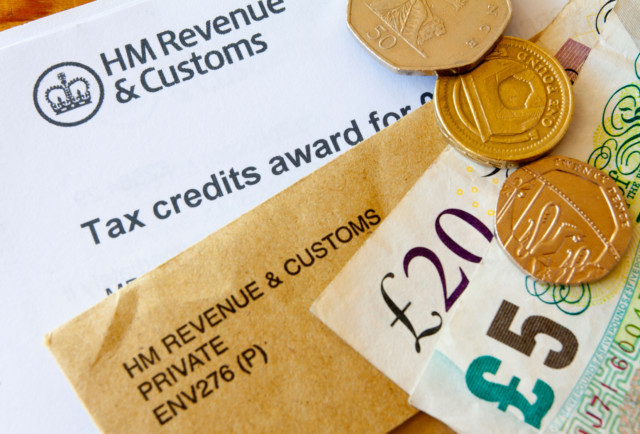TODAY is the last day for tax credit claimants to renew them – or face losing out on up to £3,400 a year.
Tax credits give people extra money if they are on low incomes, are registered as disabled or have children that are dependent on them.
Each year, people who receive the credits, which include working tax and child tax credit, have to renew or tell the government if their circumstances have changed.
The date for renewal for most people is July 31, or the date shown on your renewal pack.
How do I renew my tax credits?
You should have been sent a renewal pack by HMRC, which explains whether you need to renew or update your information.
People who need to renew will have a letter with a red line on it and the words “reply now” on it.
Those who need to update HMRC with their details will have a letter with a black line and the words “check now” on it.
You can then either renew or update your details online or by phone or post.
If your details are correct you don’t need to do anything and your tax credits will be automatically renewed.
What details do HMRC need from me to do my renewal?
- Your renewal pack – if you still don’t have it, you need to contact HMRC
- Your National Insurance number
- Details about any changes to your circumstances
- You and your partner’s total income for the last tax year (6 April 2019 to 5 April 2020)
- The 15-digit renewals reference number on your renewal pack – if you’re renewing by phone
What is a change in circumstances?
A change in circumstances can be either if your home life is different from last year, or the number of hours you work has changed, according to HMRC.
Home life changes can include starting or ending a relationship, getting married or forming a civil partnership, moving in with a partner or a permanent separation, divorce or if a partner dies.
For parents, if your child leaves home, goes into care, is taken into custody or dies, is over 16 and leaves school or a training course then you need to inform HMRC.
If your childcare costs stop, drop by £10 or more a week, you start getting help with them, or if your childcare provider is no longer registered or approved they’re counted as changes.
If your working hours drop below 30 hours a week (combined if you’re in a couple with children) or go above the minimum that you can qualify for, then that’s also a change.
But if your hours have changed because of coronavirus, you don’t need to tell them.
You’ll be treated as if you’re working your normal hours until the coronavirus job retention scheme closes.
Make sure you’re clear and honest about any changes – people who give the wrong information can be fined up to £3,000.
What happens if I miss the deadline?
If you miss the deadline your tax credits payments will stop.
HMRC will then send you a letter, which will say TC607 on it, and you’ll have to pay back the tax credits you’ve received since April 6 this year.
If you contact HMRC within 30 days of the date on the statement, your tax credit claim may be restored and you won’t have to pay anything back.
But if you contact HMRC later than the 30 days, they will ask you to explain the reasons for the delay – known as “good cause” – before they consider restoring your claim.
You could be given until January 31 next year to confirm your details but this isn’t guaranteed and is decided on by a case by case basis.
You can only make a new claim for tax credits if you get the severe disability premium or got it in the past month and are still eligible for it.
Instead, you may be able to apply for either Universal Credit or Pension Credit depending on how old you are.
Who is eligible for tax credits and how much can I get?
Working tax credit is for low-income workers who are 25 and over.
People who are aged 16-24 can also claim if they have a child or a qualifying disability.
You must work a certain number of hours per week to qualify, which varies depending on your age and personal circumstances.
For child tax credit, if you have a child under the age of 16, or who is under the age of 20 and enrolled in eligible training or education, then you qualify.
The rates vary depending on your personal situation, but you could get up to £3,220 working tax credit for next year or up to £3,415 for child tax credit.
HMRC has a calculator which you can use to work out how much you could be entitled to.
In April, the government upped tax credits by £1,040 to help families struggling with coronavirus lockdowns.
There was also an increase in child benefit and universal credit payments.
Did you miss our previous article…
https://www.hellofaread.com/money/slash-that-big-screen-spending-with-sweet-movie-deals-on-cinema-essentials/








